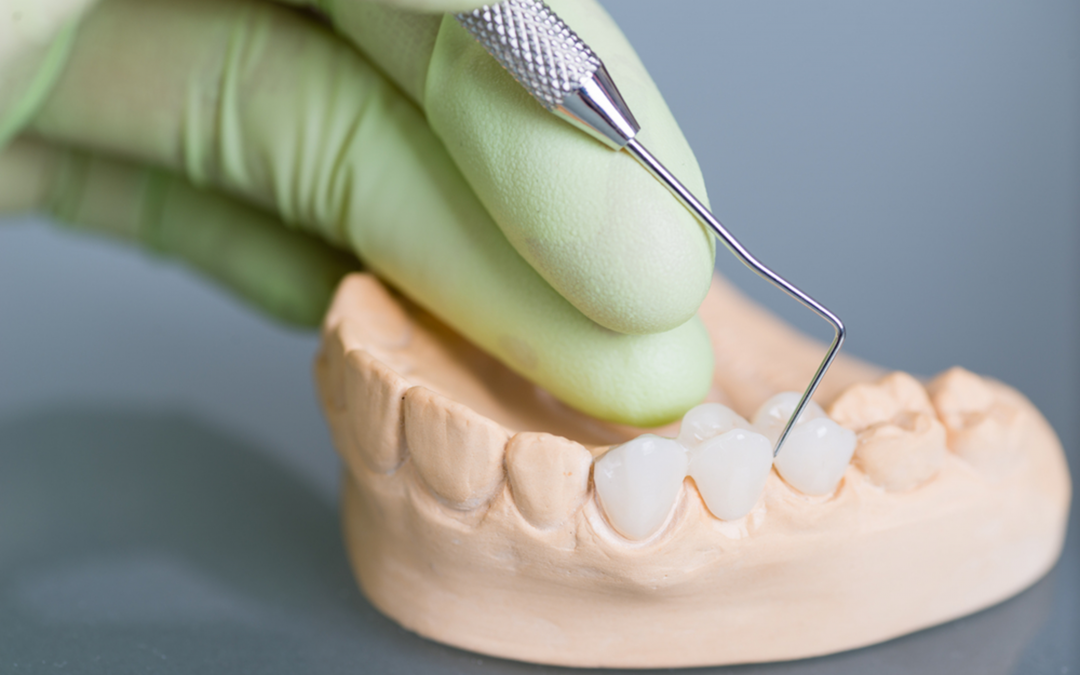Are you missing one or more teeth next to each other in a single jaw? Just because you don’t need full dentures and would prefer not to wear a partial denture doesn’t mean that you have to put up with partial toothlessness. You can replace those adjacent missing teeth using a dental bridge in Winnipeg.
Dentists use a dental bridge near you to hold a false tooth or teeth called pontics made out of gold, porcelain or alloys — or some combination of those materials — in position to replace the appearance and function of missing teeth. There are four different options for a dental bridge near you. Which type of dental bridge is right or best for you depends on a large number of factors, most specifically where your missing teeth are located. The location of the missing teeth helps to determine the pressure and strain to which the bridge will be exposed.
One other factor in choosing the best form of dental bridge is the number of teeth that you need to replace. Bridges can be used to replace a single tooth, but are more often used to replace between two and four teeth — or even more. Just how many you need to replace (and where they are) is something to review with your dentist as you consider the four bridge options. Here’s an introduction to the four types of dental bridges available from a dentist near you.
Traditional
The most traditional and common type of dental bridge is one that holds pontics in place with crowns placed onto abutment teeth. Crowns are a type of dental restoration. Crowns resemble thimbles and are placed over teeth for lots of reasons, including providing support for dental bridges. In traditional bridges, pontics are held in place by two crowns — one on each side of the gap in your teeth. A traditional dental bridge in Winnipeg is most commonly made from porcelain fused to metal (PFM) or ceramic materials.
Cantilever
Cantilever dental bridges work in precisely the same way as a traditional dental bridge, except that a cantilever bridge is held in place with one or two crowns on one side of the missing tooth or teeth (rather than on both sides of the gap in your jaw). Cantilever bridges offer the advantage of requiring a natural tooth on only one side of a gap. Because a cantilever bridge only uses one crown, though, cantilever bridges do not offer the strength and durability of traditional bridges.
Maryland or resin-bonded
Maryland bridges are a type of bridge that does not rely on crowns at all. Instead, Maryland bridges hold pontics in a metal or porcelain structure that is bonded onto the reverse side of neighbouring teeth using bonded dental resins. Because resin-bonded bridges do not use crowns, they are not as strong as traditional crowns and can be used to replace front teeth (but are not appropriate for molars and premolars). A Maryland bridge requires that you have a natural tooth on each side of your missing teeth so that there will be two surfaces (one on each side of the gap) to permit the bonding of the bridge structure to those abutment teeth.
Implant-supported
Like a Maryland bridge, an implant-supported bridge does not use crowns. Unlike traditional, cantilever and resin-bonded bridges, though, an implant-supported bridge doesn’t rely on your remaining natural teeth at all. Rather, an implant-supported bridge is held in place by titanium dental implants that your dentist in Winnipeg placed directly into your jaw bone. An implant-supported bridge will be held in place by multiple implants. Implant-supported bridges are because they’re rooted in your jaw, the strongest, most stable, and most natural solution for replacing multiple missing teeth. Having said that, they’re also the most expensive alternative that does involve the lengthiest and most complex dental procedures.
Which type of bridge will help you to replace your missing teeth and to accomplish your goals? Make an appointment with a dentist near you who will review your needs and recommend solutions. The staff at Markham Dental Centre are committed to ensuring you get the right solution for your needs and lifestyle.

